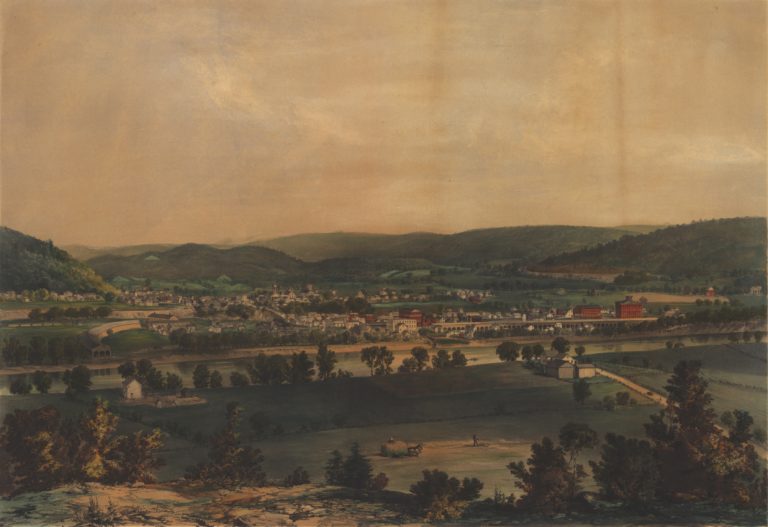Poems

Vanishing Point
In the great valley between Hwando and Yazoo City,
laborers tend opium poppies and cotton,
Dying of yellow fever. But on the heights, there is a calm
incense of roasting pork, a delicate mist of flesh
Lovers stroll through to the platform at cliff’s edge
Where they gaze down like diligent scholars
At a landscape falsified precisely for their pleasure.
From there, a faint pentatonic music skirls
Up from the valley floor, where we overseers hone
blue notes from invisible instruments stroked
With the abrasive bow of coal smoke and acid rain.
A Reconciliation
And they were happy in the end, if by happiness
you mean everything was forgotten.
Time had been deeply layered in their bodies
like the ruins of Troy in a hill. Now the innocent
Cattle waged war on milkweed in a pasture,
while a formation of geese wedged harmlessly
Into the evening air. What had they fought about
endless years ago? Time clarifies nothing,
But buttresses of worked stone dissolve in its weightlessness.
Nothing now to defend except their bodies,
Which survived, growing lighter and more translucent
and more useless. In the night sky, stars convened
In images of gods and humans, watching for a sign
of any remnant of passion, a recognition of blood
Transcendence: old Helen fucking ruined Menelaus.
Statement of Poetic Research
The Skandalon of History
“Vanishing Point” and “Reconciliation” are from a forthcoming book of poems called Skandalon (LSU Press, fall 2014), a word that has in English only a ghostly existence in the realm of theology, where it means, as The Oxford English Dictionary puts it, “A stumbling-block, cause of offence, scandal”—scandal here meant in the ordinary sense, but also in a larger sense: anything that distracts a soul from salvation is both a stumbling-block and a scandal. So, for a heroin addict, heroin is a skandalon; for a potential saint, the stamp collection over which she obsesses, to the detriment of devotion, might be one. Dante’s Paolo and Francesca each are a skandalon to the other. In Christian terms, the entire fallen world is a skandalon—a distraction, and a metaphysical scandal—and so all of human history is one.
Obviously the Greek word skandalon is the root of the common English word scandal. In ancient Greek, skandalon denotes the trigger of a trap, and so all the meanings dissolved in the word by Christian theology, as is so often the case, are metaphorical. The little lever in a mousetrap where one puts the cheese is a skandalon: the cheese distracts the mouse, and scandalously draws it on to destruction. So the politician’s attractive aide might be like the lever in the trap; so, to Everyman, the whole “fallen” world, all of history.
Unpacking this odd word (and there is much more in it to unpack than present space permits) led me, if not to the writing of a book, at least to a means of giving form to one, which may be said to be the same thing. Unpacking a word’s etymology is of course a mode of historicizing, and language being, as Emerson famously put it, “fossil poetry,” I have found myself, over many decades of practice, often following the thread of etymology through the maze of my own perception of the historical.
Meditating on the maze in which we are fated to wander—take it out of the Christian frame and the consequences of the skandalon are neither better nor worse; it shifts its reference perhaps to the existential, and the trap is the void—has allowed me a fruitful process of casting and recasting the net of process. In “Vanishing Point,” the history of privilege is scandalous; in “Reconciliation,” the act of reconciliation in the face of fact is.
After the conquest of Troy, Helen and Menelaus returned home and resumed their marriage, “history” tells us. How is that possible? In Euripides’s play Helen, the two are united for eternity on the Isle of the Blessed. Why? And for the rest of their lives—for the rest of eternity—what on earth (for earth is the ultimate skandalon) must they have talked about?
In the narrative of the fate of these two, what is “history” exactly? Helen and Menelaus are—even on the Isle of the Blessed—the ghosts of a scandal. “Beware of Greeks bearing gifts,” we are told, but we may equally want to beware of gifts bearing Greeks. Every “fact” of history is—as historians and poets learn to their sorrow—potentially a skandalon.